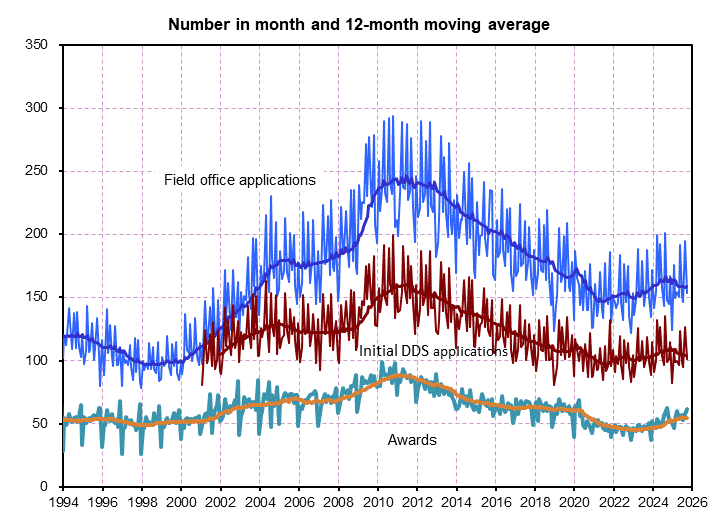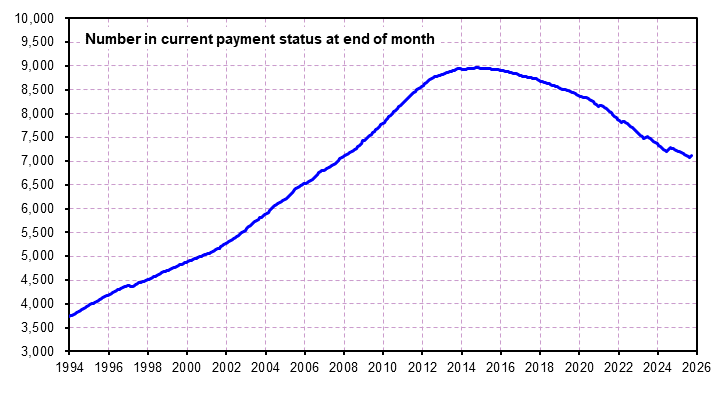Chuck Shumer of New York, the Democratic leader in the Senate, is pushing for better service at Social Security. He's right to do so. Wait times at the agency's field offices and on the agency's 800 number service are awful. However, you might wonder why he wouldn't be satisfied with the fact that the agency just got a boost in its funding.
Think about this, though. I'm told that, at least in the field offices, they're only being allowed to hire one employee for two employees who leave. I would appreciate news about what's going on at Social Security's teleservice centers and payment centers. I suspect they're getting much the same treatment.
The field offices are getting lots of overtime authorized but overtime only takes you so far. Even with lots of overtime you're going to get less work done as your workforce dwindles.
How is it that field office staffs are being cut even though the appropriation has gone up? First, that appropriation didn't go up that much. It came on the heels of several years where appropriations failed to keep up with inflation. Second, Congress directed that the vast majority of the increase in funding go to information technology. This sort of thing goes back at least to former Social Security Commissioner Barnhart during the George W. Bush administration. Republicans in Congress and in the Executive Branch have wanted to make sure that any increase in administrative funding for Social Security goes not to hiring employees but to contractors.
I believe that the Republican preference for contractors over employees has several bases. I think that, at best, Republicans in Congress and in the Executive Branch are indifferent to service at Social Security. Consciously or unconsciously they seem to be of the "cut it until it bleeds and then complain about the bloodstains" mentality. Bad service helps undermine public support for what they regard as the original sin of the New Deal. In general, they're hostile to government employees who are perceived as Democrats and partial to contractors who are perceived as Republicans. They're also naive about service at Social Security. They think that field office and 800 number service is unnecessary, that people will just switch to doing their business with Social Security over the internet if we quit babying them. This comes from visualizing Social Security as just processing people onto retirement benefits. They don't get that helping people file retirement claims is only a part of the workload at the field offices. Most of what they do is work on disability, survivor and Supplemental Security Income claims, which are vastly more complicated than retirement claims and many of the claimants they're working with are seriously impaired. There's no practical way to reduce much less eliminate the need for field office service or 800 number service at any foreseeable time in the future.
I'd like to find out who made that one for two decision. Was it made at Social Security? At the Office of Management and Budget (my guess)? In the White House?
I'd like to find out who made that one for two decision. Was it made at Social Security? At the Office of Management and Budget (my guess)? In the White House?


